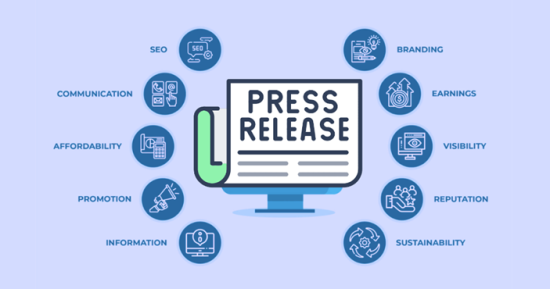
Did you know that the average American has over $90,000 in personal debt? With so much borrowing happening, it’s natural to wonder, how many loans can you have at once? The answer may surprise you.
According to the first source, borrowers can have more than one personal loan, but how many loans and how much you can borrow depends on a lender’s requirements and whether they’ll approve a second or third loan. Managing multiple personal loans can also strain your budget, so it’s worth considering alternatives before turning to another loan.
The second source states that there are no federal regulations prohibiting someone from having multiple personal loans, but lenders may set a maximum number, and they will examine your credit score and debt-to-income (DTI) ratio to ensure you can pay your new bill. The third source mentions that while there’s no official limit to how many personal loans a consumer can have at one time, many banks, credit unions, and other lenders may set a maximum number, and they will also most likely examine your credit score and DTI ratio to ensure you can pay your new bill.
Understanding Personal Loan Limits

When it comes to personal loans, borrowers may wonder, “How many loans can you have?” The answer is not a one-size-fits-all, as lenders consider several factors when determining loan eligibility and limits. While there are no federal regulations prohibiting multiple personal loans, lenders may set their own maximum thresholds to manage risk and ensure a borrower’s ability to repay.
Factors Lenders Consider for Multiple Loans
Lenders examining a request for an additional personal loan will closely scrutinize the borrower’s creditworthiness and overall financial health. Factors like on-time payment history, total outstanding loan amounts, and credit score will all play a role in the lender’s decision. A high debt-to-income (DTI) ratio and multiple credit applications in a short period can negatively impact the chances of approval for another loan.
Debt-to-Income Ratio and Credit Score
Lenders use the borrower’s DTI ratio and credit score to assess the risk of extending another loan. A high DTI, indicating a significant existing debt burden, may prompt the lender to deny the application or offer a higher interest rate. Similarly, multiple hard credit inquiries from recent loan applications can temporarily lower the borrower’s credit score, which could also jeopardize approval for a new loan.
Lender Policies on Maximum Loan Amounts
In addition to evaluating the borrower’s creditworthiness, lenders also have their own policies and regulations that dictate the maximum number of personal loans and total loan amounts they will approve. These limits can vary widely across different financial institutions, so borrowers should research and understand each lender’s specific requirements before applying for multiple loans.
By understanding the factors that lenders consider and the policies they enforce, borrowers can make more informed decisions about pursuing additional personal loans and manage their debt responsibly.
Obtaining Multiple Loans from the Same Lender
When it comes to obtaining multiple personal loans from the same lender, there are a few key factors to consider. Let’s take a closer look at the maximum number of loans allowed, minimum payment requirements, and waiting periods between loan applications.
Obtaining multiple loans from the same lender can be a convenient option for those who need extra financial assistance. However, before delving into this avenue, it is crucial to understand its potential impact on your credit score. Many individuals wonder, “Do multiple loans affect credit score?” The short answer is, yes, multiple loans can have an effect on your credit score.
Maximum Number of Loans Allowed

The number of personal loans a lender will provide to a single borrower can vary. Some lenders have strict limits, while others may have more flexible policies. For example, a table of popular lenders and their personal loan limits shows that the maximum number of loans ranges from 1 to no limit, with loan amounts up to $100,000.
Minimum Payment Requirements
The number of personal loans a lender will provide to a single borrower can vary. Some lenders have strict limits, while others may have more flexible policies. For example, a table of popular lenders and their personal loan limits shows that the maximum number of loans ranges from 1 to no limit, with loan amounts up to $100,000.
When it comes to borrowing money, many people wonder how many loans they can have at once. The answer depends on several factors, including the lender’s policies and the borrower’s financial situation. So, can you have 4 loans at once? Well, it really depends on the lender you are working with. Some lenders may have a maximum limit on the number of loans a person can have, while others may have more flexible policies. It’s essential to research and compare different lenders to find one that suits your needs
Waiting Periods Between Loan Applications
Lender policies on the maximum number of loans and waiting periods between applications can also differ. Borrowers must carefully review each lender’s specific requirements when seeking additional personal loans from the same provider. Understanding these factors can help ensure a smooth application process and increased chances of approval.
Qualifying for Additional Personal Loans
While the possibility of obtaining multiple personal loans may seem enticing, the reality is that the approval process can present significant challenges. The biggest obstacle borrowers often face is getting approved for additional loans, as lenders carefully scrutinize factors like your debt-to-income ratio, existing loan amounts, and overall creditworthiness.
Impact of Existing Debt on Approval
Your current debt burden is a crucial consideration for lenders when evaluating your eligibility for another personal loan. If you already have outstanding loans, especially those with high balances, lenders may be hesitant to extend additional credit, as it could strain your financial capacity and increase the risk of default. Maintaining a manageable debt-to-income ratio is essential for securing approval for multiple personal loans.
Potential for Higher Interest Rates
Even if a lender does approve you for a second or third personal loan, the interest rate you’re offered may be higher than the rate on your initial loan. This is because lenders often view borrowers with multiple outstanding loans as having a greater risk profile, which can translate to a higher cost of borrowing. Carefully considering the potential for higher interest rates is important when weighing the decision to take on additional personal debt.
Ultimately, the path to qualifying for additional personal loans requires a strong credit profile, stable income, and a demonstrable ability to manage your existing debt obligations. By understanding the factors lenders consider and the potential implications, you can make informed decisions about whether pursuing multiple personal loans aligns with your financial goals and long-term well-being.
How Multiple Personal Loans Affect Your Credit?

While obtaining multiple personal loans can provide financial flexibility, it’s important to understand the potential impact on your credit score. The number of loans you have, as well as the application process, can influence your creditworthiness in both positive and negative ways.
Firstly, it’s important to address the question: do multiple loans affect your credit score? The answer is not a simple yes or no. While having multiple loans in and of itself does not negatively impact your credit score, the way you handle them can. Timely payments and responsible management of your loans can actually have a positive effect on your credit.
Credit Inquiries and Score Impact
Applying for multiple personal loans within a short timeframe can temporarily lower your credit score due to the hard credit inquiries. Each application triggers a hard inquiry, which can temporarily reduce your score by a few points. However, making on-time payments on your existing and new personal loans can help improve your credit score over time, demonstrating your ability to manage multiple loans responsibly.
Payment History and Credit Utilization
Your payment history and credit utilization ratio are key factors in how multiple personal loans affect your overall credit score. Maintaining a consistent record of on-time payments on all your loans, regardless of the number, can positively impact your creditworthiness. Additionally, keeping your total debt load below 30% of your available credit can also help mitigate the potential negative effects of having 2 bank loans or more.
By understanding how multiple loans can affect credit score, borrowers can make informed decisions about their financing options and take steps to preserve their credit health while accessing the capital they need.
Alternatives to Taking Out Multiple Personal Loans
While taking out multiple personal loans may seem like a viable option to address your financial needs, it’s essential to carefully consider alternative solutions that could potentially offer more favorable terms and better align with your long-term financial goals. Some alternative options to explore include “buy now, pay later” plans, home equity loans or lines of credit, and 0% APR credit card offers.
Buy Now, Pay Later Options
Buy now, pay later (BNPL) services have gained popularity in recent years, providing consumers with the ability to make purchases and pay for them over time, often with no interest or fees. These services can be a useful alternative to personal loans, especially for smaller, more manageable expenses. By leveraging BNPL options, you may be able to avoid the debt burden and potential credit score impacts associated with multiple personal loans.
Home Equity Loans and Lines of Credit
If you own a home, exploring home equity loans or lines of credit can be a beneficial alternative to multiple personal loans. These products typically offer lower interest rates and longer repayment terms compared to personal loans, making them a more cost-effective option for some borrowers. However, it’s important to carefully consider the risks and implications of using your home as collateral.
0% APR Credit Card Offers
Many credit card issuers offer promotional 0% APR periods on new accounts or balance transfers, which can be a useful alternative to personal loans. These offers allow you to finance purchases or consolidate debt with no interest charges, as long as the balance is paid off before the promotional period ends. This can be a smart strategy, but it’s crucial to have a plan in place to ensure the balance is paid in full before the 0% APR expires.
While these alternatives may provide more favorable terms and better align with your financial needs, it’s essential to carefully evaluate each option based on your individual circumstances and goals. Consult with a financial advisor or lender to determine the most suitable solution for your specific situation, and be mindful of the potential risks and long-term implications associated with any form of debt.
How Many Loans Can You Have?

When it comes to the number of personal loans a borrower can have, there are no federal regulations that impose strict limits. However, individual lenders may set their own policies on the maximum number of loans they are willing to approve for a single borrower. The first source indicates that while there are no overarching restrictions, lenders may restrict the number of loans based on factors such as the borrower’s credit score, debt-to-income ratio, and total loan amount.
The second source expands on this, explaining that while there is no official limit, many lenders will closely evaluate a borrower’s financial profile, including their credit score and existing debt load, when determining how many loans to approve. This assessment helps lenders ensure the borrower has the capacity to manage additional debt without overburdening their budget.
Interestingly, the third source notes that some lenders may impose specific limits, such as restricting borrowers to a maximum of two or three concurrent personal loans. Conversely, other lenders may focus more on the total debt burden rather than the number of individual loans when evaluating loan applications.
| Lender | Maximum Personal Loans Allowed | Maximum Loan Amount |
|---|---|---|
| SoFi | No Limit | $100,000 |
| Upstart | No Limit | $50,000 |
| LendingClub | 3 Loans | $40,000 |
| Avant | 2 Loans | $35,000 |
In summary, while there are no federal restrictions on the number of personal loans a borrower can have, lenders will carefully evaluate each applicant’s financial situation and creditworthiness to determine how many loans they are willing to approve. Borrowers should be aware of individual lender policies and consider the impact of additional debt on their overall financial health before seeking multiple personal loans.
Responsible Borrowing Practices
When it comes to managing multiple personal loans, it’s crucial to approach the process responsibly. Taking on too many loans can strain your budget and potentially impact your long-term financial stability. Therefore, it’s essential to carefully consider alternatives before taking on additional debt.
Assessing Your Financial Situation
Before pursuing another personal loan, borrowers should take the time to assess their current financial situation. This includes evaluating your income, existing debt, and your ability to make the additional loan payments without compromising your overall financial health. By understanding your financial capabilities, you can make an informed decision about whether taking on another loan is the right choice for you.
Budgeting for Additional Loan Payments
Responsible borrowing practices also involve budgeting for the new loan payments. It’s important to understand how the additional debt will impact your monthly expenses and long-term financial goals. By carefully budgeting for the new loan payments, you can ensure that you can manage the increased financial obligations without putting undue strain on your budget.
Ultimately, managing how many loans can you have, is it bad to have too many loans, is it smart to have two loans, how long should you wait between loans, and do multiple loans affect credit score requires a thoughtful and strategic approach. By assessing your financial situation, budgeting for the new loan payments, and considering alternatives, you can make responsible decisions about taking on additional debt and safeguard your long-term financial well-being.
Refinancing Existing Personal Loans
While most lenders may not be willing to increase the size of an existing personal loan, borrowers may have the opportunity to refinance their loan and access additional funds. Refinancing can offer several potential benefits, such as securing a lower interest rate or the ability to borrow a higher loan amount. However, it’s crucial for borrowers to carefully consider the long-term implications before proceeding with a refinance.
Potential Benefits of Refinancing
Refinancing a personal loan can provide borrowers with access to more capital, potentially at a lower interest rate than their current loan. This can be particularly advantageous for those who have improved their credit score or financial standing since taking out the original loan. Refinancing may also allow borrowers to extend the repayment term, resulting in lower monthly payments, which can be helpful for those with two loans or managing multiple debt obligations.
Considerations Before Refinancing
While refinancing can offer certain benefits, it’s important for borrowers to weigh the potential drawbacks as well. Refinancing may come with higher monthly payments, depending on the new loan terms, and can have a greater impact on the borrower’s debt-to-income ratio and credit score. Borrowers should carefully evaluate the costs and long-term implications of refinancing, including any fees or prepayment penalties associated with the new loan, to ensure it aligns with their overall financial goals and which bank is best for a personal loan.
Maximizing Approval Chances for Multiple Loans
As you consider taking on multiple personal loans, it’s crucial to build a strong credit profile and demonstrate stable income to maximize your chances of approval. Lenders will closely examine your creditworthiness and ability to manage additional debt when evaluating your applications.
Building a Strong Credit Profile
Maintaining a history of on-time payments and low credit utilization can significantly improve your chances of qualifying for multiple personal loans. Borrowers with a strong credit profile, including a high credit score and a track record of responsible borrowing, are more likely to be approved for additional loans. Regularly monitoring your credit report and addressing any discrepancies or negative items can help strengthen your overall creditworthiness.
Demonstrating Stable Income

Lenders will also scrutinize your income and employment history when assessing your applications for multiple personal loans. Providing documentation that demonstrates a stable and consistent source of income, such as pay stubs, tax returns, or employment verification, can help convince lenders that you have the financial capacity to manage additional debt. Maintaining a steady job or income stream over an extended period can further improve your chances of securing multiple loans.
FAQs on How Many Loans Can You Have
How many loans can you have from a single bank?
The number of loans you can have from a single bank depends on the bank’s lending policies and your creditworthiness, but there is typically no strict limit as long as you can manage the repayments effectively.
How many loans can you have at one time without affecting your credit score?
While there is no set limit to the number of loans you can have, having multiple loans can affect your credit score by increasing your debt-to-income ratio and requiring multiple hard inquiries into your credit report.
How many loans can you have for buying properties?
Real estate investors can typically hold multiple mortgage loans for different properties, but lenders may limit the total number based on your financial stability and investment strategy.
How many loans can you have from different lenders?
You can have loans from multiple lenders simultaneously; however, each lender will assess your existing debt obligations and credit history to determine your eligibility for additional financing.
How many loans can you have before it becomes unmanageable?
The number of loans you can manage varies based on your income, expenses, and financial planning. It’s crucial to avoid over-leveraging yourself to prevent financial stress and potential defaults.








